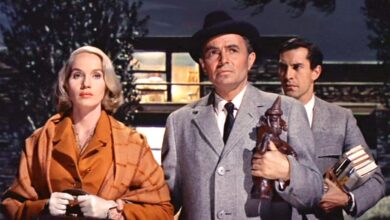MALÈNA (2000): The Woman Who Was Loved, Desired… and Destroyed
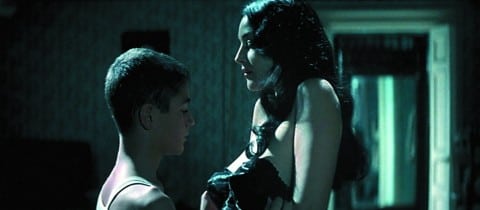
1. Sicily’s Secret Fantasy
Welcome to Castelcuto, a sun-soaked Sicilian town during World War II, where gossip travels faster than bombs. But forget the war—everyone’s eyes are locked on her. She doesn’t speak much, but when she walks, the world forgets to breathe. That woman is Malèna. And she is trouble. Or so they whisper. She is beauty, sorrow, s.e.x, and silence all wrapped in the body of Monica Bellucci—a woman too stunning for her own safety.
2. The Boy Who Watched
Renato, thirteen, is still figuring out how to hold a cigarette, but he already knows how to worship. His obsession with Malèna goes beyond childish fantasy—it becomes his religion. He watches her from behind corners, climbs trees to peek into her window, and dreams of saving her from the cruelty of the world. But he’s powerless, and that powerlessness burns deeper than any teenage crush. His desire is raw, voyeuristic, and painfully innocent.
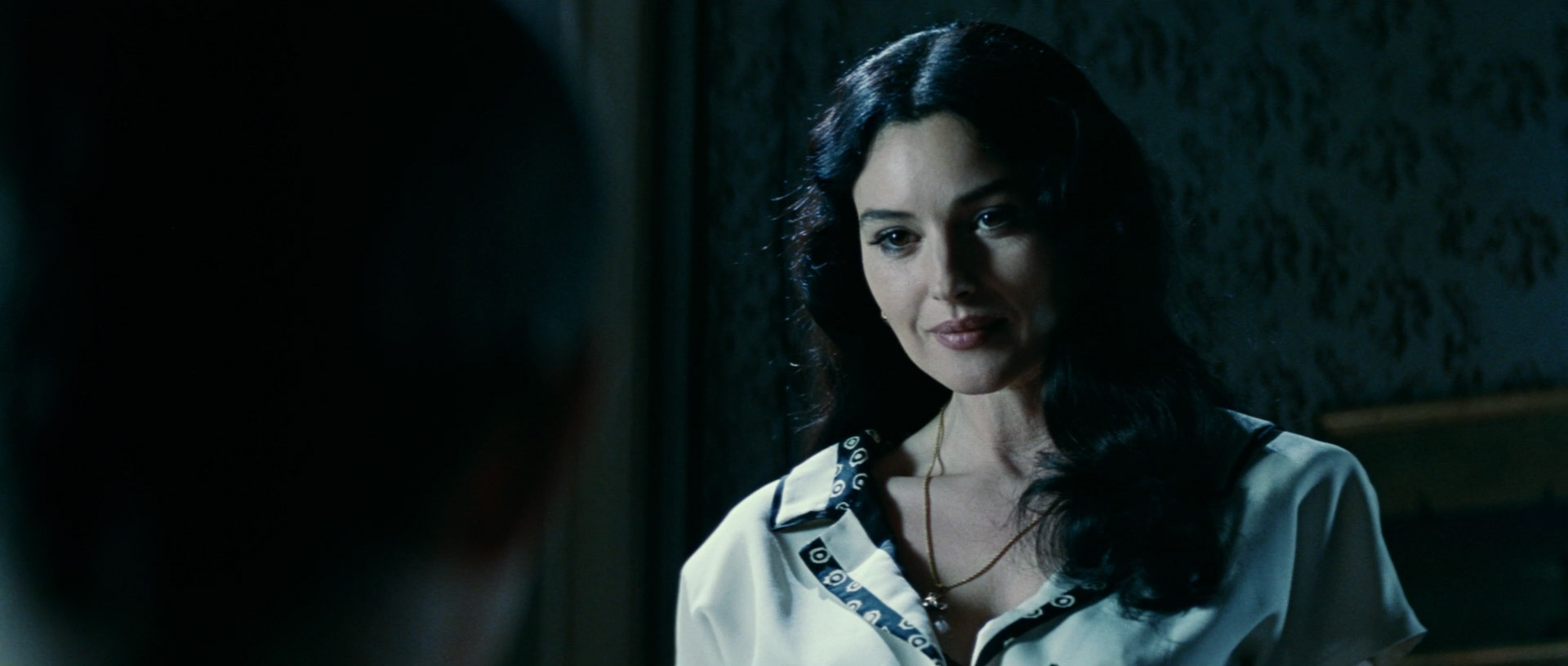
3. A Body on Trial
Malèna doesn’t need to speak to be judged. Her husband is presumed dead at war, and the town wastes no time turning her into their collective scapegoat. The women loathe her, the men lust after her, and no one sees the real person beneath the beauty. Her every move—every sway of her hips, every strand of undone hair—is treated like a courtroom confession. Is she sleeping around? Is she a widow? Is she asking for it? It doesn’t matter. The verdict has already been decided.
4. Beauty as a Weapon… and a Curse
What do you do when your face causes riots? When your body is used like a dartboard for small-town frustrations? Malèna is a living tragedy, but not because of what she does—because of what is done to her. Director Giuseppe Tornatore paints her like a goddess in a temple of cruelty. Monica Bellucci doesn’t just play a beautiful woman; she embodies the burden of being seen as nothing but beauty. Every camera shot lingers like a jealous lover.
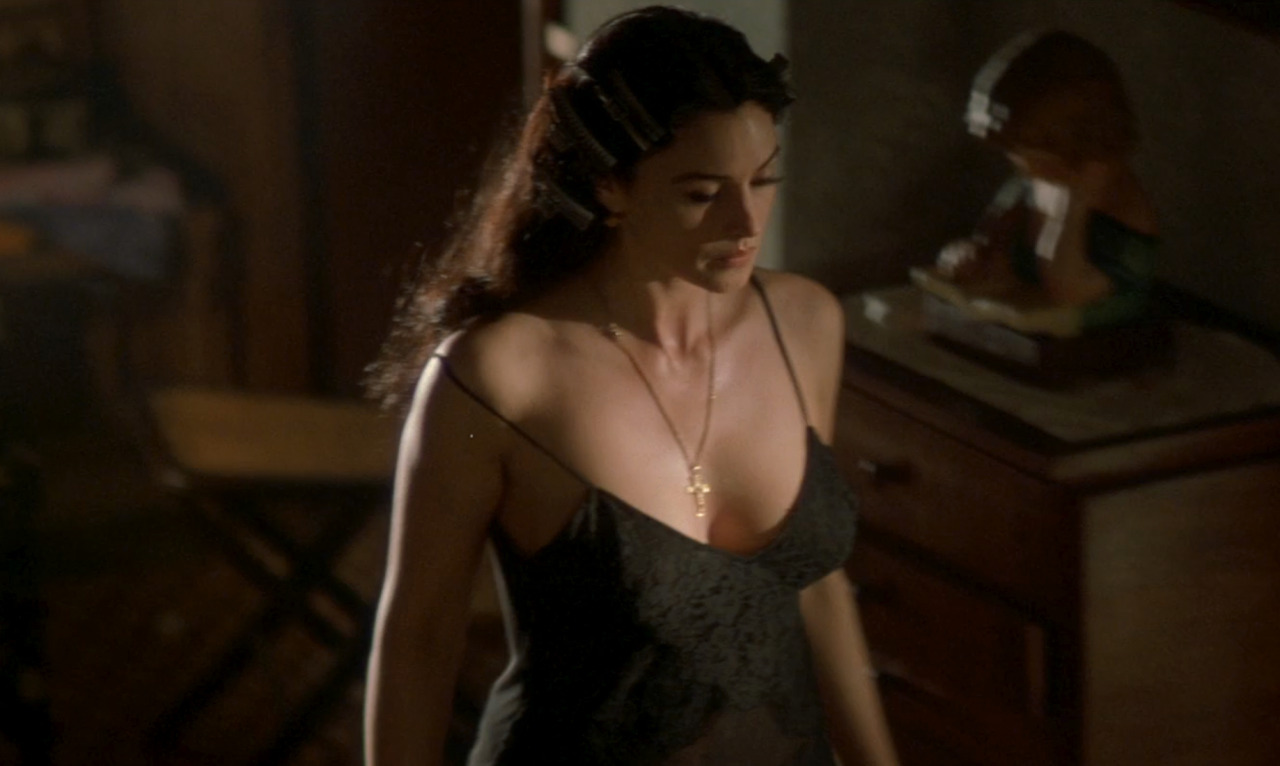
5. The Fall from the Pedestal
When Malèna is finally forced into survival—trading dignity for food, reputation for safety—Castelcuto erupts in righteous vengeance. The women drag her into the street. They cut her hair, strip her, beat her, and spit on her. It’s not a punishment for what she did—it’s for what she represents. In that moment, the film becomes unbearable to watch, because it forces you to ask: were you watching her like Renato? Quiet. Distant. Fascinated. Helpless.
6. Renato’s Redemption—or Cowardice?
Renato never touches her. Never saves her. He dreams of it. But when she is suffering, he watches—again. Only at the end, years later, when she is a shell of her former self, quietly returning to the town with her resurrected husband, does he offer her a silent gesture of humanity. Too little, too late. Or perhaps that’s all he ever had to give.
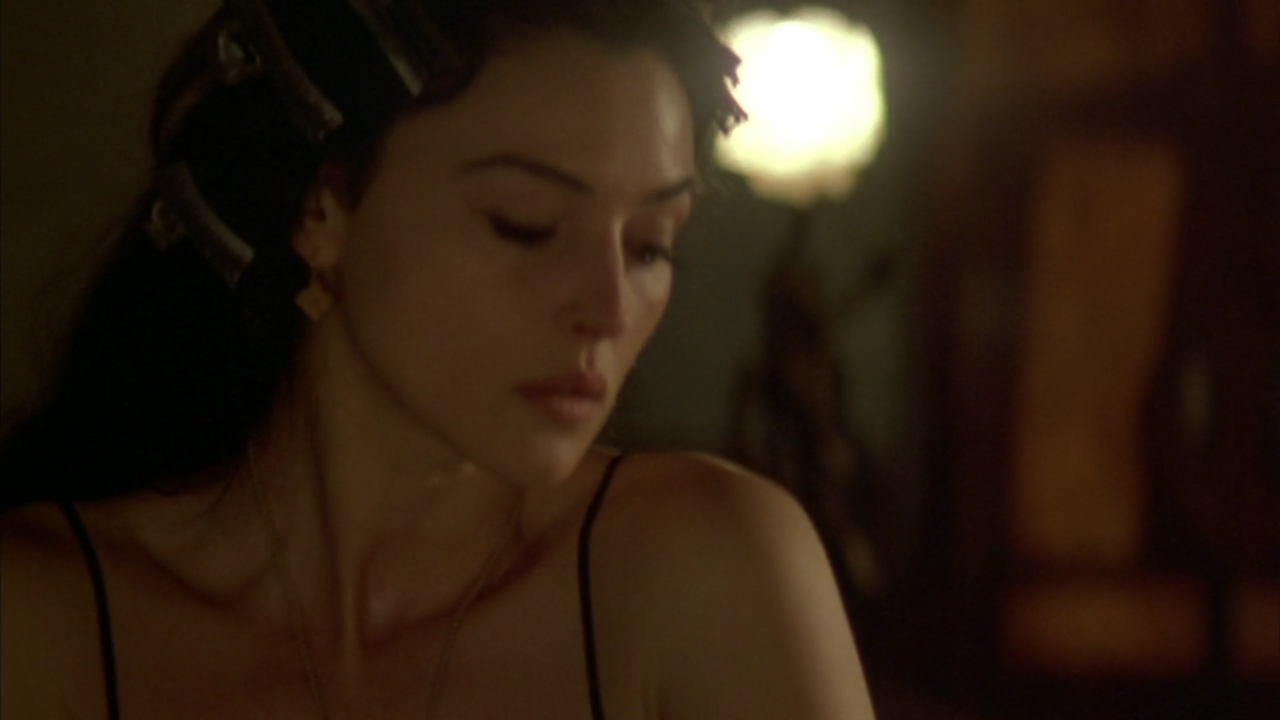
7. The Town Moves On. Malèna Disappears.
Castelcuto forgets. Time moves. Gossip fades. But for those who really watched Malèna—not as a fantasy, but as a woman—she never disappears. She is still walking, somewhere in our minds, hips swaying through dust, dignity quietly pieced back together.
8. The Seduction of the Audience
Malèna doesn’t seduce characters; she seduces you. The film doesn’t need explicit s.e.x scenes. Its power is in suggestion, in the unbearable tension between lust and morality. Between adoration and annihilation. It asks questions most people avoid: How much of desire is love? How much is possession? And can beauty survive being touched, judged, ruined?
This isn’t a film. It’s a mirror held up to your darkest gaze. Watch it if you dare. Watch it again, and ask yourself: did you love her? Or were you just another pair of eyes?



